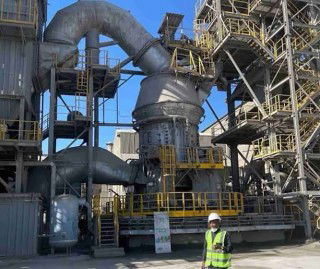LafargeHolcim and the Bangladesh government have renewed a gas sales agreement (GSA) on 24 June, which will remain in effect for 10 years. Under this revised agreement, LafargeHolcim has concurred with Jalalabad Gas Transmission and Distribution System Ltd (a subsidiary of Petrobangla) to accept the current industrial gas rates of BDT40/m3 (US$0.34/m3) and BDT42 for captive use.
LafargeHolcim operates the only integrated cement plant in Chhatak, Sunamganj, and has been active in Bangladesh for over 20 years. Notable attendees at the signing ceremony held at Bidyut Bhaban included Energy Adviser, Dr Faozul Kabir Khan, Swiss Ambassador, Reto Renggli, Spanish Ambassador, Gabriel Sistiaga Ochoa de Chinchetru, European Union Ambassador, Michael Miller, and Mohammad Iqbal Chowdhury, CEO of LafargeHolcim Bangladesh PLC, along with senior officials from both parties.
Local media reported that in 2003, the government had signed a 20-year agreement with LafargeHolcim, which set a ceiling for gas tariffs at US$2.80/Mcf. This ceiling allowed companies to benefit from below-market rates for many years, even with multiple hikes in domestic gas prices aimed at reducing subsidies. As a result, LafargeHolcim continued to pay only BDT11/m3.
Recently, Martin Kriegner, a member of the Holcim Group Executive Committee and region head for Asia, the Middle East, and Africa, met with Bangladesh’s Chief Adviser, Professor Muhammad Yunus, at the State Guest House Jamuna during the Bangladesh Investment Summit.
LafargeHolcim has proposed a substantial investment contingent upon a guaranteed fixed gas tariff. “We are thankful to the government for its continuous support, which enables us to produce world-class products in Bangladesh,” stated Mr Kriegner. He also noted that the company uses “non-recyclable plastics” as a fuel source at its Chhatak factory, asserting that this process has zero environmental impact.
“Holcim has been a global pioneer in sustainable solution technologies, which we are also deploying in Bangladesh,” he added, mentioning that the company has carbon capture projects in other countries that could be replicated in Bangladesh.
by Abdul Rab Siddiqi, Pakistan
